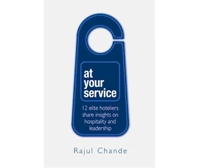London Hotels Insight provides up-to-date, independent advice for your perfect stay in London. We research guest feedback, meet management and identify hotels at the top of their game.
Should hotels respond to online reviews (part 1)?
Hoteliers in London often ask me how to deal with TripAdvisor comments. A recent survey by TripAdvisor/Market Metrix found that 85% of hotels have no guidelines on how to handle negative guest reviews published online.
In this two-part article, we focus on London hotels that appear to do this well. We hope this will encourage others to follow suit in the knowledge that complaint recovery is one of the best ways to build customer loyalty.
We all love to use TripAdvisor, but it does have faults. It’s not surprising that this blog’s TripAdvisor User Guide is one of our most popular posts.
Occasionally, people do also use TripAdvisor malevolently.
I know one very solid London hotel for which someone posted a lot of negative comments when they returned home and asked friends and family (who had of course never stayed at the hotel) to do the same.
These negative comments went against the grain of most other reviews in a hotel where I personally know the management to be very diligent.
If the hotel can prove foul play in such cases, management should contact TripAdvisor directly to see if invalid comments can be removed. TripAdvisor is usually understanding and even-handed in these situations.

It's not about whether a hotel gets complaints but how well - and how personally - it responds to them
But back to the original question: assuming a negative comment is genuine, how should hotel management respond to it, if at all?
Some hotels put in standard responses – the worst possible solution.
By entering some “blah blah” about how you value their feedback, etc. (without addressing the specific underlying issue) a hotel’s management is simply being arrogant. It’s better not to bother responding at all.
Other hotels respond to negative comments by thanking the guest (a good start) and mentioning some specific steps they may have taken.
Better still, they may actually give ownership of the issue to the hotel department head responsible for that area, who responds in person.
That for me underlines that complaints are a genuine improvement opportunity – if the hotel in question is fundamentally well-run of course.
One hotel that does this well is the Lanesborough. We’ve featured this hotel several times on the blog and admire its management , the staff training, its hi-tech amenities (including free WiFi) and the ethos of transparent pricing which is so unusual in super-luxury hotels.
Check the best rate for The Lanesborough from 30+ hotel booking sites
Whenever a comment appears on TripAdvisor, the relevant department head at the Lanesborough actually follows up on the specific experience that led to the comment. The response is then personal, written by the person directly responsible and acknowledges the issue raised.
Do check some recent TripAdvisor reviews for the Lanesborough yourself.
The Lanesborough is by no means a cheap hotel – in fact it houses one of London’s four most expensive hotel rooms within its distinguished walls.
But I’m impressed that it is not too snooty to respond to TripAdvisor reviews (when several of its top-end competitors in London do not seem to bother acknowledging online guest comments at all).
Check the best rate for The Lanesborough from 30+ hotel booking sites
In part two of this feature, we identify a hotel that goes even further than the Lanesborough in responding to online guest complaints.
Get the best-value London hotel deal from 30+ booking sites in 1 click
Photo credits: The Lanesborough.
Previous post: Top London pantomimes for this festive season.
Next post: Should hotels respond to online reviews (part 2)?

































{ 6 trackbacks }
{ 3 comments… read them below or add one }
This is a very timely and noted topic. You very much hit the money on why hotels should respond to negative comments. But they must be sincere. I believe that sites like Trip Advisor can be helpful in helping travellers decide on a hotel. They have created a platforn that provides for a dialog between past guest reviewers as well as for the hotels. To this end, hotels should use the positive reviews to expand on their products and services and better explain what is on offer. This is especially true of ‘experiential hotels’. Rathsallagh House in Ireland, I think does a very good job of this. See http://bit.ly/7bU2GA – By using Trip Advisor in this way it becomes another form of social networking. Keep up the good work. Look forward to part 2.
Thanks for your great comment Jeffrey. I also appreciate the link you provide to the Rathsallagh House guest comments on TripAdvisor. That is clearly another hotel which provides very personal responses that recognise guests as individuals and not just numbers.
Personally, I swear by trip advisor, I see it as the Holy Grail and will not book a holiday without checking out the reviews. From a general perspective, I am sure I can speak for many readers when I say that customers are fed up of seeing the holiday brochures that show 4 & 5 star hotels. Then you arrive and it is not as it seems, by then you have spent alot of money and there is little that you can do.
The flip side, I am sensible enough to realise if someone has a bad experience, they will give the hotel a poor rating, equally some give it an extremely high one. I always read both extremes, taking note of the reoccurring themes. i.e. unable to sleep to due building work outside, limitations on what is supposed to be “all inclusive”, lots of children out of control.
I agree there are some malicious ones, but Trip advisor are not responsible, the onus is on the hotel to provide a good service, which will in turn minimise negative reviews